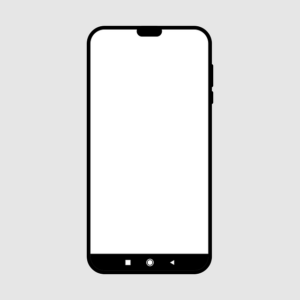In Nebraska, as across the nation, businesses increasingly rely on autodialers for marketing and appointment setting, leveraging their efficiency but facing challenges in managing customer expectations. For autodialer lawyers in Nebraska, understanding how these systems work is crucial for compliance with consumer protection laws while effectively meeting client needs. Clear communication builds trust, minimizes frustration, and enhances relationships. By adhering to best practices, including personalization, time management, and legal compliance (especially under the TCPA), autodialer technology can be optimized to foster trust and client satisfaction in Nebraska. Combining automated outreach with thoughtful follow-ups is key to building lasting relationships.
In today’s fast-paced legal landscape, efficient client communication is key. Nebraska attorneys increasingly turn to autodialers as a tool for reaching potential clients. However, managing customer expectations with these automated systems is crucial for maintaining professionalism and client satisfaction. This article explores the effective use of autodialers, offering insights from a lawyer’s perspective on setting realistic expectations, legal considerations, best practices, and follow-up strategies to ensure positive interactions with clients in Nebraska.
Understanding Autodialers and Customer Communication in Nebraska

In Nebraska, as across the nation, businesses increasingly rely on autodialers for customer communication. These automated systems, often used for marketing and appointment setting, offer significant advantages in terms of efficiency and cost-savings. However, they also introduce complexities into customer interactions, particularly when it comes to managing expectations. Understanding how autodialers work is a crucial first step for businesses and especially autodialer lawyers in Nebraska to ensure compliance with consumer protection laws while effectively meeting client needs.
Effective communication involves setting clear, realistic expectations from the outset. Autodialers should be programmed to convey accurate information about the purpose of the call, what follows (e.g., a live agent transfer), and how long customers can expect to wait. This transparency builds trust and minimizes frustration, ensuring Nebraska consumers feel respected rather than overwhelmed by automated interactions. By integrating this approach into autodialer usage, businesses in Nebraska not only enhance their customer relationships but also mitigate potential legal issues related to deceptive practices.
Setting Realistic Expectations: A Lawyer's Perspective

In Nebraska, where legal practices often rely on efficient communication tools, the integration of autodialers can be a double-edged sword. While these automated systems streamline outreach, they also necessitate clear, realistic expectation setting with clients. From a lawyer’s perspective, managing customer expectations with autodialers involves balancing client needs with technological capabilities.
Setting realistic expectations ensures that clients understand the scope and limitations of what an autodialer can achieve. This includes transparent communication about call frequency, personalized interaction, and response time. Lawyers should clearly articulate that while autodialers enhance accessibility, they cannot replace nuanced human connection. By setting these expectations upfront, Nebraska-based legal professionals can foster trust, maintain client satisfaction, and optimize the use of autodialer technology.
Best Practices for Using Autodialers to Meet Client Needs

When utilizing autodialers in Nebraska to connect with clients, adhering to best practices is essential for managing expectations and ensuring a positive customer experience. One key practice is personalization; each call should be tailored to the individual recipient. This means using the client’s name, referencing prior conversations, or addressing specific needs to create a more engaging and relevant interaction. Personalization helps build rapport and makes the lawyer’s firm stand out in a crowded market.
Additionally, efficient time management is crucial. Lawyers should set clear goals for each call, such as scheduling a consultation or providing case updates. Autodialers can be programmed to handle initial greetings and basic information gathering, allowing lawyers to focus on more complex discussions. Promptly addressing client inquiries and keeping them informed throughout the process demonstrates professionalism and respect for their time. Regular reviews of call data and feedback from clients will help identify areas for improvement, ensuring the autodialer remains a valuable tool for meeting client needs effectively.
Navigating Legalities and Compliance Issues with Auto Dialer Usage

Using an autodialer in Nebraska comes with legal considerations that businesses must navigate to ensure compliance and avoid potential pitfalls. In the U.S., including Nebraska, the Telephone Consumer Protection Act (TCPA) regulates the use of automated dialing systems, such as autodialers. Understanding and adhering to these regulations is essential for businesses to protect themselves from legal repercussions and maintain customer trust.
Businesses must obtain explicit consent from customers before using an autodialer to make marketing calls. This involves obtaining written or verbal permission, ensuring opt-out mechanisms are in place, and respecting customer choices. Additionally, Nebraska’s specific laws and regulations regarding telemarketing practices should be reviewed and complied with. Seeking advice from a qualified attorney specializing in telecommunications law can help businesses navigate these complexities, ensure compliance, and mitigate risks associated with autodialer usage.
Strategies to Enhance Customer Satisfaction Through Effective Follow-Up

After utilizing an autodialer for initial outreach, maintaining customer satisfaction relies heavily on proactive and personalized follow-up. Law firms in Nebraska should aim to create a human connection despite using automated technology. Promptly responding to client inquiries, whether via phone, email, or text, demonstrates attentiveness and respect. Customizing each interaction by referencing the client’s specific needs or concerns fosters trust and loyalty.
Additionally, implementing a robust communication strategy ensures consistency in messaging across all channels. Clear and consistent updates on case progress, deadlines, and next steps help manage expectations. Regular check-ins allow for addressing any concerns or clarifications promptly, minimizing frustration and enhancing overall customer satisfaction. Using an autodialer effectively for initial contact should be complemented by thoughtful, personalized follow-up to build lasting relationships with clients in Nebraska.






